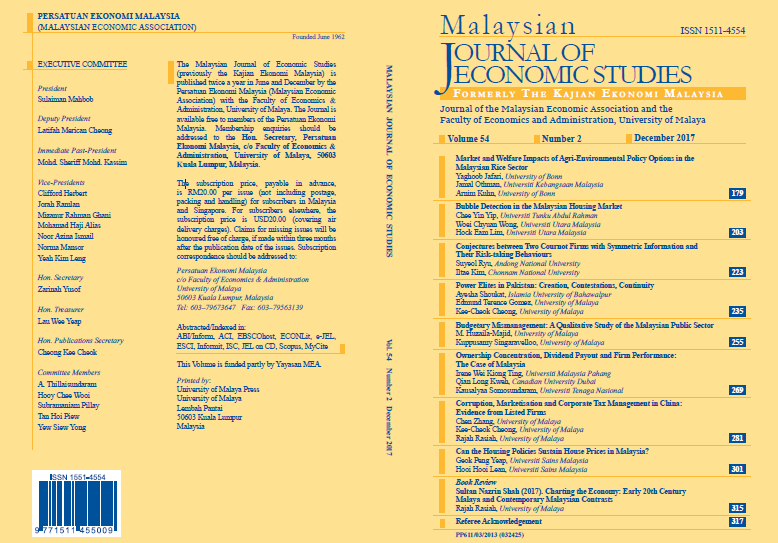Market and Welfare Impacts of Agri-Environmental Policy Options in the Malaysian Rice Sector
DOI:
https://doi.org/10.22452/MJES.vol54no2.1Keywords:
Agrochemical, Malaysia, partial equilibrium model, rice sector, welfareAbstract
The use of agrochemicals including pesticides and chemical-based fertilisers in the Malaysian rice sector is stimulated through substantial direct subsidies. In light of the pursuit of environmentally friendly rice production practices, the government may consider reducing the use of these inputs. In doing so, a number of policy options, including subsidy reductions and reducing dependence on chemicals and pesticides and to move towards more natural and environmental friendly inputs are considered. This study employs a partial equilibrium model with explicit welfare functions and linkages to the Rest of the World (ROW) to address the impacts of government policies on the use of agrochemicals, food security and welfare. Results suggest that a 10 percent reduction in agrochemical subsidies considerably reduces the use of agrochemicals; however, it significantly decreases national welfare and weakens food security. Further simulation denotes a reduction of 10 percent of demand for agrochemicals has com-parable impacts to that of a 10 percent reduction in agrochemical subsidies except that it increases the nation’s welfare. Overall results imply that encouraging the use of organic inputs might have a more desirable impact on the variables of interest relative to reducing agrochemicals either through subsidy reduction or input restriction.

